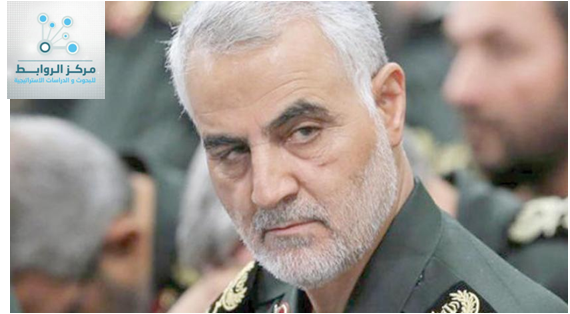Iranian politicians have never thought that the US occupation of Iraq on April 9, 2003 would be a strategic gift from Washington to Tehran, and the latter accepted that gift and considered it as the most precious ones. Since then, Iran has used all its Political, economic, military and security tools to keep Iraq under its influence, so it will not hesitate to resort to any method for the continuity of that influence.
A British report on Iran’s reliance on assassinations to liquidate its opponents and critics in Iraq has revealed Tehran’s growing need to rely on tougher methods to maintain its influence, which began to shrink with the expansion of popular resentment over the symbols and leaders of the political process, most of them pro-Iranian , this was happened after everyone realized the failure of that process , and after the Iraqis have touched the disastrous consequences on various aspects of their lives. The British newspaper ‘ The Daily Telegraph” , Friday – in a report by defense editor Kun Kuglin quoted British security officials, as saying that Tehran uses teams of assassinations to silence critics, amid what it described as Iranian attempts to intervene in the affairs of the new Iraqi government.
The newspaper “The Daily Telegraph” quoted British security officials as saying that the “assassination squads” had been deployed following the Iraqi general elections in May when Iranian attempts to control the formation of the new Iraqi government were hampered due to the failure of pro-Tehran candidates to take over an adequate percentage of the votes.
According to the newspaper, during the Iraqi election campaign, Iran supported one of Iraq’s former prime ministers, whose close association with Tehran’s ruling circles was one of the main factors that led to his removal from office in the Iraqi government. The newspaper quoted the officials as saying that the Iranian side in its electoral bet in the appointment of another candidate with Iranian support was the leader of one of the factions of the popular crowd, although neither of them received enough votes to give one of them the right to form a government. Some officials who provide military advisory services, support and training to the Iraqi armed forces say Iran has responded to those failures by sending a number of assassinations squads of “the Quds Force” in an attempt to silence Iraqi voices critical of Iranian intervention attempts in Iraq’s political destiny.
Kuglin said in his report:”One of the main victims of these teams so far has been Adel Shaker al-Tamimi, a close ally of former prime minister Haider al-Abadi, who was assassinated by the Qods Force last September,” . Al-Tamimi, a 46-year-old Shiite politician with dual Iraqi-Canadian citizenship, the report describes him as part of Baghdad’s attempts to heal the rift between Sunnis and Shiites in Iraq and he has worked as an unofficial envoy to restore and improve relations with neighboring countries such as Jordan and Saudi Arabia. The report points out that the Iranian assassination squads targeted opponents from various political spectrums in Iraq. Another example of this victim is Shawqi al-Haddad, that the report describes him as close to the Shiite cleric Moqtada al-Sadr, who was receiving Tehran’s support but recently took a more nationalist approach , according to the report. He was killed in July after he has accused Iran of interfering with Iraq’s elections and falsifying them.
According to a senior British security official as saying , the failure of pro-Iranian political candidates in last May’s Iraqi election to win enough votes led the current Prime Minister Abdul Mahdi, a pragmatic politician to win , who wants to reduce Iranian interference in his country. General Mark Carlton Smith, commander of the British army, told the paper that he considered Iran’s malicious influence on Iraqi affairs to be one of the main threats facing the world today.
In addition to dispatching assassinations squads to Iraq, security officials say the forces of the Quds Force, led by General Qassim Soleimani, are also seeking to strengthen their military positions in the country. By exploiting Shiite militias like Kata’b Hezbollah in Lebanon, Iranian side is smuggling weapons into Iraq for use against other US and Western targets. Last September, the pro-Iranian militias were charged with attacks against US targets in Iraq, including the US Embassy in Baghdad and its consulate in Basra.
Therefore, the information contained in the report of the British newspaper “Daily Telegraph” on the deployment of Tehran teams of assassinations aimed at silencing critics in Iraq, were not surprising to the Iraqis and not strange to the Iranian policy, which Iraqis know that they aim to wipe out all that is Arab in Iraq starting from its opponents and to those who are kept silent on its practices, if the editor of defense affairs in the British newspaper (Koon Kuglin) asked any Iraqi about this matter , he would know that what was revealed to him by British security officials have precedents in history, and that the Iranian death machine did not stop its exclusionary approach in Mesopotamia, since the American occupation of Iraq, and that the current physical liquidations and assassinations, today, are only one of the rings to establish its influence in Iraq.
To sum up, since 2003, Tehran has relied on influential party leaders and militias to ensure a strong presence in Iraq and to participate in Iraq’s decision-making and to guide the country’s major policies to its own interests. However, marketing them to the wider public is no longer possible due to their corruption, as well as for their failure in the administration of the country, which recorded huge declines in all areas of social, economic and security. Iran has become aware of the growing resentment on it and on everything to have a link related to Iraq, in the street during the demonstrations, where slogans were raised against Iranian policies in the country.
Iraqi Studies Unit
Rawabet Center for Research and Strategic Studies

